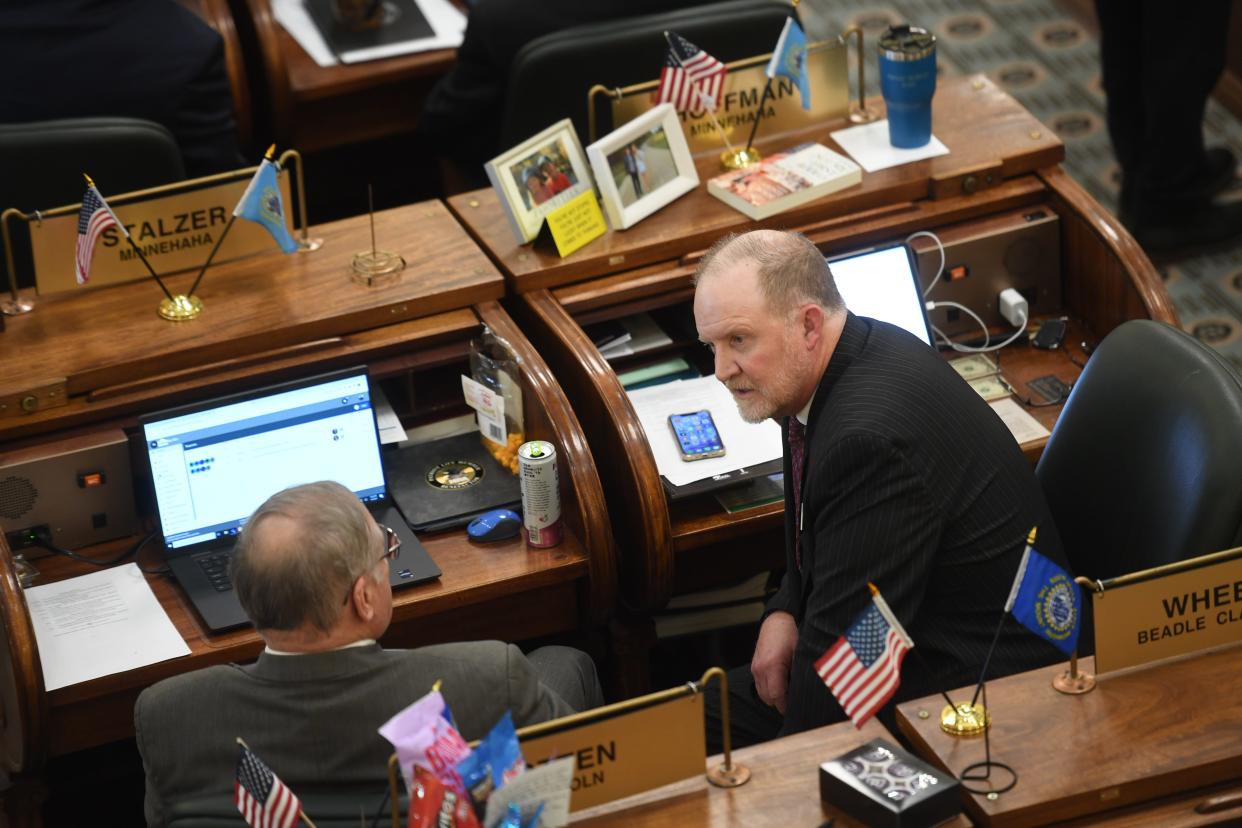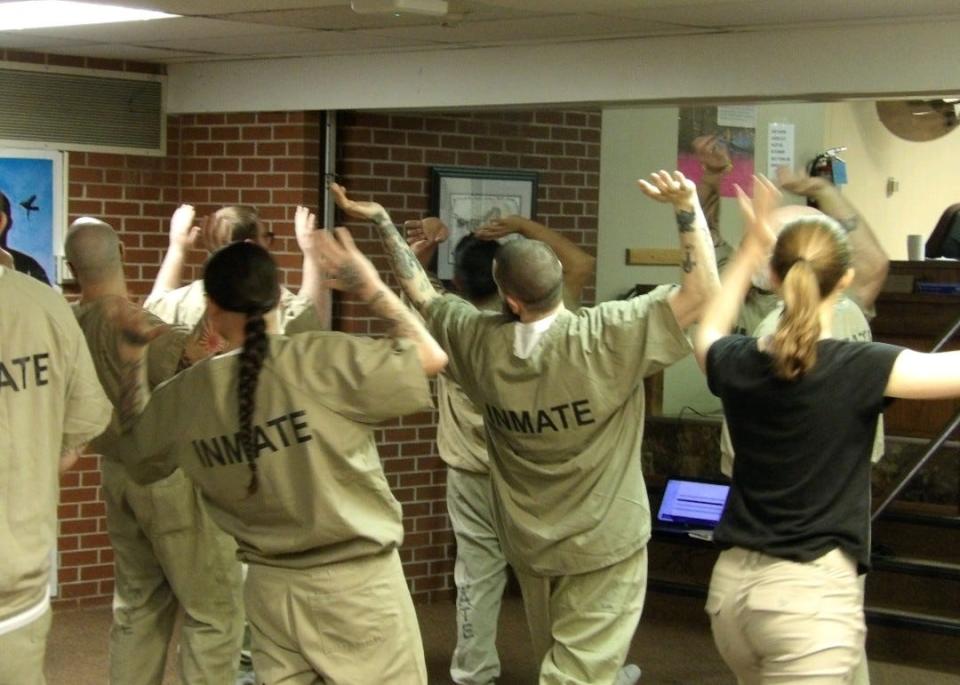Efforts to create better programming opportunities for inmates fails in SD Legislative session

PIERRE — An effort to require better access to educational and behavioral programing within the state's prison system failed out of a Senate committee hearing Thursday morning, after the Department of Corrections testified against the bill.
Sen. Brent Hoffman, R-Hartford, sponsored SB 74, known as "Truth in Corrections." He explained the bill came off of the heels of another he successfully got through last year that created more stringent sentencing guidelines for people convicted of serious crimes.
"This one is geared a little bit more toward the compassion, rehabilitation and mercy side of the continuum," he said.
SB 74 featured three main parts:
access to educational, behavioral and addiction programing as soon as an incarcerated person enters prison,
access to identification documents such as a non-drivers license state ID as soon as the person is getting ready to leave prison,
and requiring the DOC to issue an annual report on programming within the prison and how that's contributing to the recidivism rates of former inmates.
Hoffman noted South Dakota had a 40% recidivism rate, with technical parole violations making up a majority of the reason for someone's return to incarceration.
More: South Dakota Senate committee approves bill to protect poll workers from threats
And while proponents of the bill echoed the sentiment that incarcerated men, whom they had worked with, had been asking for more access to programming, DOC Secretary Kellie Wasko pleaded with the committee that there already wasn't enough space at the state's overcrowded prisons and the bill would hamper efforts already in place by the department.
"When we take any kind of operations and we put them in the law, it then requires legislative action for us to make any changes moving forward," Wasko said, reiterating she's a believer in re-entry programs.
She noted the department had recently hired a re-entry programing manager and that the department was working with those incarcerated to create individualized programming plans.
As for providing forms of identification for incarcerated people about to be released back into society, Wasko said the DOC already has an agreement with Department of Public Safety to provide state-issued driver licenses. Social security cards are more difficult to obtain because of the need of a birth certificate.
"Take that offender that's with me for three months," Wasko said. "They don't know what county they were born in. Some don't know what state they were born in. Some don't know what their birth name was."

Wasko added with the construction of the new men's prison, more space for programming would become available, and the DOC is already working toward better reporting how programming impacts recidivism.
Senators sitting on the judiciary committee spoke to the difficulty of killing the bill. While they believe in the need for more access to programming, the DOC and the state's prisons are already facing a staffing and space shortage.
"While I think this is very well intended, and I think a lot of this will be resolved with the new prison, I'm not sure right now that we can impose this on our department and expect any real solutions until the staffing and the space problems are resolved," Sen. Jim Stalzer, R-Sioux Falls, said.
Sen. Helene Duhamel, R-Rapid City, who serves as the public information officer for the Pennington County Sheriff's Department, said the county jail is facing a space shortage and officials have created a variety of programs for people to attend out of necessity.
"We have to stop the cycle of people coming and going, but also because it makes them better inmates, where it's not creating havoc and they don't have anything to do," Duhamel said.
SB 74 died in a 4-1 vote, with Hoffman being the lone no vote to keep it alive.
This article originally appeared on Sioux Falls Argus Leader: 'Truth in Corrections' bill fails out of SD Senate committee
